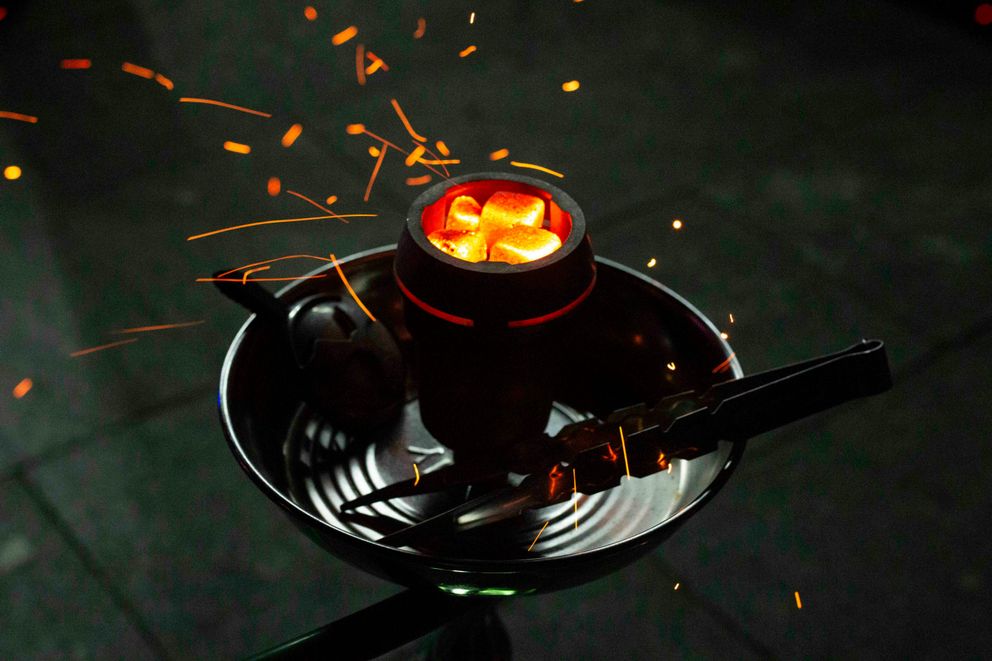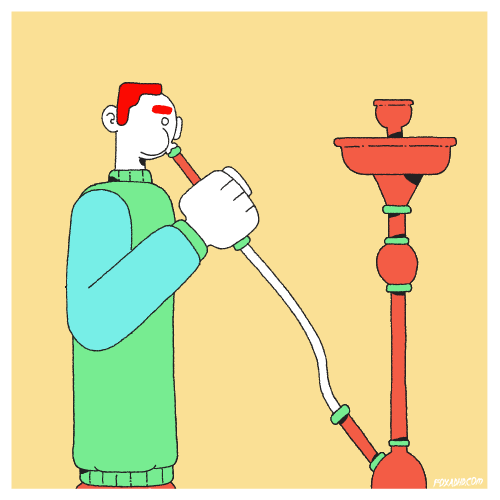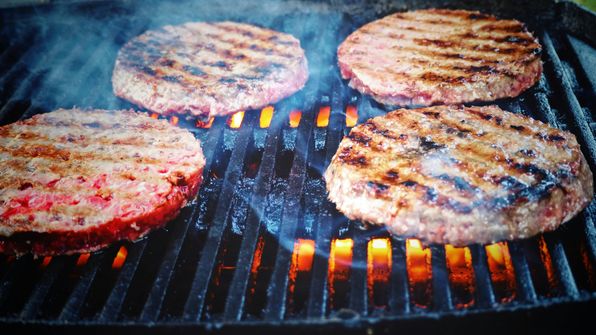
Snuff Risks for Women in 2024: Understanding the Health Dangers
Snuff, a type of smokeless tobacco, might seem like a safer alternative to smoking cigarettes, especially if you’re looking to avoid the obvious risks...

Hookahs, also known as water pipes or shisha, have gained popularity over the years, especially among women who view them as a less harmful alternative to smoking cigarettes. The social aspect of hookah use, often enjoyed in lounges or at gatherings, adds to its appeal. However, many people are unaware of the significant health risks associated with using hookahs. Despite the misconception that they are safer because the smoke is filtered through water, hookahs expose users to numerous toxins and pose serious health risks.
In 2024, it’s more important than ever to understand the dangers of hookah use, particularly for women. Let’s explore the risks associated with hookah smoking and why it’s not the safer choice some believe it to be.

A hookah is a water pipe used to smoke flavored tobacco, known as shisha. The device heats the tobacco using charcoal, and the smoke passes through a water chamber before being inhaled through a hose. While this process might seem like it makes the smoke less harmful, it actually still contains many dangerous substances, including nicotine, tar, carbon monoxide, heavy metals, and carcinogens.
Here are some of the most concerning health risks linked to hookah use for women, based on the latest research and expert advice.
One of the biggest risks of using hookahs is exposure to harmful chemicals that can cause serious health problems.
Why It’s Risky: Many people mistakenly believe that the water in a hookah filters out harmful chemicals, making it safer than smoking cigarettes. However, this is a myth. The water does not effectively filter out toxic substances. In fact, hookah smoke contains many of the same harmful chemicals found in cigarette smoke, such as nicotine, tar, carbon monoxide, and heavy metals like lead and arsenic. A study published in the British Journal of General Practice found that hookah smoke can contain up to 36 times more tar and 15 times more carbon monoxide than cigarette smoke. This exposure can increase the risk of respiratory illnesses, cardiovascular disease, and cancer.
Keep in Mind: Using a hookah can expose you to harmful chemicals that affect your lungs, heart, and overall health. Women should be aware of these risks and consider the potential long-term health consequences.
Hookah smoking can significantly increase the risk of developing various types of cancer.
Why It’s Risky: Like cigarettes, hookah smoke contains carcinogens, which are substances that can cause cancer. The charcoal used to heat the tobacco produces additional toxins, such as polycyclic aromatic hydrocarbons (PAHs) and volatile organic compounds (VOCs), which have been linked to cancer. A study by the CDC highlighted that hookah smokers have a higher risk of developing lung cancer, oral cancer, and bladder cancer. Women who smoke hookah regularly are particularly at risk due to the prolonged exposure to these harmful substances during extended hookah sessions, which can last an hour or more.
Stay Informed: Women who use hookah should understand that they are at risk of exposure to carcinogens, which can increase the likelihood of developing cancer. It’s important to be aware of these dangers and take steps to reduce or eliminate exposure.
Using hookahs can lead to unexpected physical injuries, including burns and accidents.
Why It’s Risky: Hookah setups involve hot charcoal to heat the tobacco, and these coals can easily cause burns if accidentally touched or knocked over. The charcoal can remain hot for a long time, and the glass parts of the hookah can also heat up and cause burns. Moreover, because hookahs are often used in social settings with crowded spaces, there’s a higher chance of spills and falls, leading to burns and other injuries. A study published in the Injury Epidemiology found that burns related to hookah use are common, particularly on the hands and face, and can require medical treatment.
Be Cautious: To avoid burns and injuries, always handle the hookah and charcoal carefully. Make sure the hookah is placed on a stable surface away from children and pets. Never leave a lit hookah unattended, and use tongs to handle hot charcoal.

Sharing a hookah can increase the risk of spreading infectious diseases among users.
Why It’s Risky: Hookahs are often used in social settings, where multiple people share the same mouthpiece. This practice can lead to the spread of infectious diseases, including respiratory infections, tuberculosis, and even hepatitis. A study in the American Journal of Preventive Medicine found that shared hookah use is associated with a higher risk of transmitting infectious diseases due to the close contact and communal sharing of the device.
Be Cautious: To reduce the risk of infection, avoid sharing hookah mouthpieces with others. It’s also essential to ensure that hookah equipment is properly cleaned and sanitized between uses.
Using a hookah can cause severe respiratory problems, particularly in women with pre-existing conditions like asthma.
Why It’s Risky: Hookah smoke irritates the airways and can cause or worsen respiratory conditions such as asthma, bronchitis, and chronic obstructive pulmonary disease (COPD). The inhalation of high levels of carbon monoxide from hookah smoke can also reduce oxygen delivery to the body’s tissues, leading to shortness of breath, dizziness, and headaches. A study published in the Chronic Respiratory Disease revealed that hookah smokers have a higher incidence of respiratory symptoms, including coughing, wheezing, and shortness of breath, compared to non-smokers.
Take Note: Women who have respiratory conditions or are concerned about their lung health should avoid hookah use. If you experience any respiratory symptoms after using a hookah, consult a healthcare provider for evaluation and advice.
Quitting hookah can be challenging, especially if it’s a regular part of your social life. However, there are several strategies that can help you stop for good:
This article is for informational purposes only and is not a substitute for professional medical advice. Always consult your doctor or a healthcare professional if you need help quitting or have concerns about your health.
A: A hookah, also known as a water pipe or shisha, is a device used to smoke flavored tobacco. The tobacco is heated with charcoal, and the resulting smoke passes through a water chamber before being inhaled through a hose. Despite the water filtration, hookah smoke still contains many harmful substances, including nicotine, tar, carbon monoxide, and heavy metals.
A: No, smoking hookah is not safer than smoking cigarettes. Although many believe that the water filters out harmful chemicals, this is a misconception. Hookah smoke contains many of the same toxic substances as cigarette smoke and can deliver even higher levels of some harmful chemicals, such as carbon monoxide and tar.
A: Yes, smoking hookah can increase the risk of several types of cancer, including lung, oral, and bladder cancer. The charcoal used to heat the tobacco produces additional carcinogens, and prolonged exposure during hookah sessions can significantly raise cancer risk.
A: Yes, hookah use can pose unique risks for women, including potential harm to reproductive health and pregnancy. The harmful chemicals in hookah smoke can disrupt menstrual cycles, affect fertility, and, if used during pregnancy, can lead to complications such as low birth weight and preterm birth.
A: Hookah smoking can seriously affect respiratory health. The inhalation of high levels of carbon monoxide and other toxins can irritate the airways and exacerbate respiratory conditions like asthma and bronchitis. It can also lead to chronic obstructive pulmonary disease (COPD) and other long-term lung issues.
A: Yes, you can become addicted to hookah due to the nicotine in the tobacco. Nicotine is highly addictive, and regular hookah use can lead to dependence. Signs of addiction include cravings, continued use despite knowing the risks, and withdrawal symptoms when not using hookah.
A: Sharing a hookah mouthpiece can increase the risk of spreading infectious diseases, such as respiratory infections, tuberculosis, and even hepatitis. It’s important to use personal mouthpieces and ensure that hookah equipment is properly cleaned to reduce these risks.
While hookah smoking might seem like a fun, social activity, it comes with serious health risks, especially for women. From exposing you to harmful chemicals and increasing your cancer risk to risking burns and spreading infectious diseases, the dangers of hookah use are real and significant. If you’re using hookah, consider the potential health risks and take steps to quit. There are many resources and strategies available to help you make a positive change for your health. Remember, it’s never too late to quit and start living a healthier life.
Here’s to making informed choices and taking control of your health in 2024!

Snuff, a type of smokeless tobacco, might seem like a safer alternative to smoking cigarettes, especially if you’re looking to avoid the obvious risks...

The connection between what we eat and how we feel is powerful—certain foods provide the nutrients our brain needs to support mood, energy, and overal...

ADHD is influenced by a mix of genetic, environmental, and lifestyle factors, and while medication and therapy are common treatments, dietary choices ...

Social gatherings often mean a spread of carb-heavy foods and tempting desserts that can make sticking to the carnivore diet feel tricky. But with a b...

The carnivore diet is often seen as straightforward: eat meat, keep it simple. But adapting it seasonally can bring freshness, variety, and local flav...